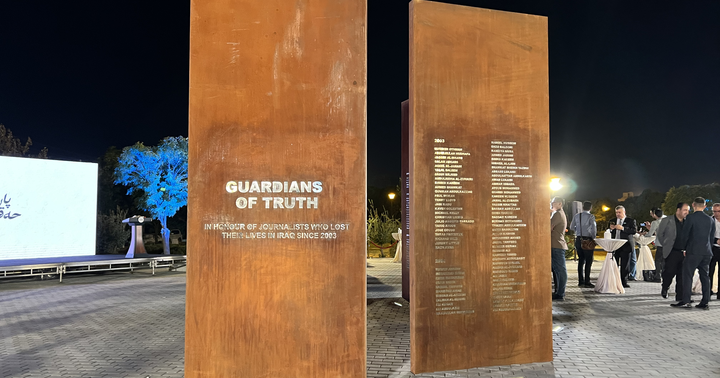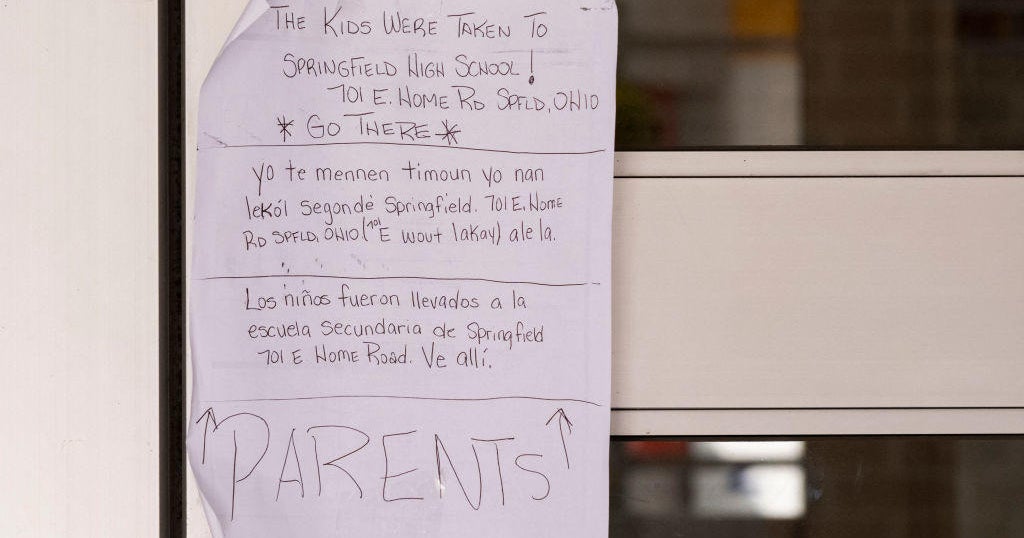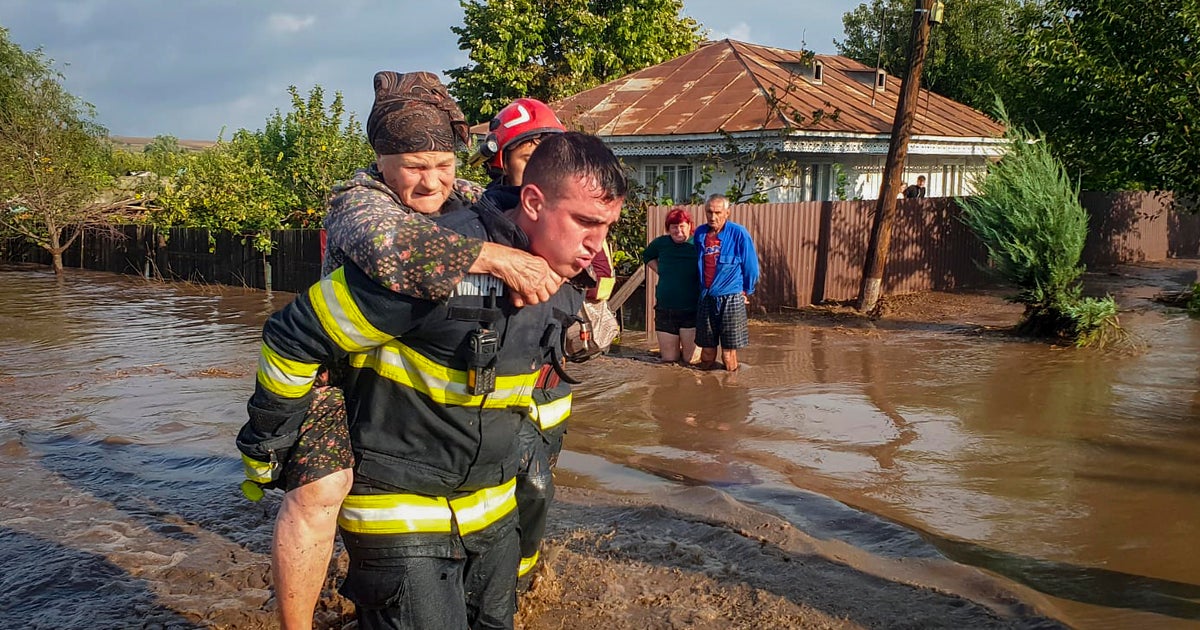County sheriffs wield lethal power, face little accountability: "A failure of democracy"
Watch the CBS Reports documentary "King of the County: The Power of Sheriffs" in the video player above.
County sheriff's officers are three times more lethal than city police, a CBS News investigation has found.
More people were killed by U.S. law enforcement in 2023 than any other year in the past decade, outpacing population growth eightfold. But despite a focus on urban areas, fatal police violence is increasingly happening in small town America at the hands of sheriffs, the top law enforcement officials in counties nationwide.
The revelation is part of the findings of a yearlong reporting effort that documented chronic misconduct in sheriff's offices and oversight failures that can enable abuses to go unchecked. The consequences can be fatal. But the majority of those cases go unreported, in violation of state and federal laws, making patterns of abuse harder to detect and stop.
CBS News gathered and analyzed federal law enforcement data that showed while more people died overall in encounters with city police, deaths in encounters with county sheriffs occurred at a significantly higher rate. For every 100,000 people arrested, more than 27 people died in the custody of sheriffs, while that number was fewer than 10 for police officers in 2022, the most recent year of available data.
"We should be scrutinizing sheriff's offices as much as we are police departments," said Chiraag Bains, a former civil rights prosecutor who served as deputy director of the White House Domestic Policy Council until 2023. "They don't get enough scrutiny."
The problem is getting worse. Sheriffs' officers are twice as deadly as they were a decade ago, according to a CBS News analysis of FBI data, and increasingly, they are taking on a larger role in policing American towns, since small police departments have been shutting down and ceding their responsibilities to county sheriffs.
A dozen sheriffs interviewed by CBS News said they hold themselves to a high standard. But some acknowledged that there is little is in place to hold them accountable if they don't. Many attribute that to their unique status as independently elected officials who are, nonetheless, empowered with the discretion to take away a person's life or liberty.
"It's serious business. Not everybody can do this job nor should be able to do the job," said David Mahoney, former sheriff of Dane County, Wisconsin, who served as president of the National Sheriffs Association from 2020 to 2021. While laws and policies vary state to state, Mahoney said that in most places, "even if convicted of a crime, [sheriffs] will continue to hold office" unless they choose to resign of their own volition or are forcibly removed.
According to CBS News' investigation, problems were more prevalent in smaller, more remote communities where deputies typically had less training, fewer resources and limited oversight. These factors allowed sheriff misconduct to continue for longer, becoming more severe and brazen before it was discovered. Even then, they rarely faced consequences.
In McCurtain County, Oklahoma, Sheriff Kevin Clardy was caught on audiotape in March of 2023 talking with other county leaders about how they might kill and discreetly bury the bodies of two local journalists who had written stories about alleged corruption inside his office, among others.
CBS News subsequently uncovered that residents had been making allegations of misconduct for years, ranging from financial improprieties to excessive force and neglect of duty. An attorney for Sheriff Clardy declined to respond to questions from CBS News but denied the allegations made in five civil rights lawsuits that are ongoing in federal court.
Interviews with law enforcement insiders combined with an original analysis of police data and court records revealed that three-quarters of reported crimes went unsolved in McCurtain County last year and some apparently suspicious deaths were never investigated or reported by the sheriff's office to independent officials — a violation of state and federal laws.
But even after a viral news scandal, a paper trail of alleged violations with audio and video evidence, and calls from the governor to resign, Sheriff Clardy remains in power today.
"Nothing has happened to them," said McCurtain Gazette reporter Chris Willingham. He and his father Bruce were the journalists whose murders the sheriff and others were heard contemplating. "They have to feel untouchable, they're above the law."
Meanwhile, some who consider themselves victims of the sheriff's office have fled town, saying they fear for their safety.
Over a 40-year period, people died in law enforcement custody at a higher rate in Oklahoma than in any other state, and in 84% of those deaths, officers or deputies didn't report their use of lethal force, according to a study published in The Lancet.
State and federal laws require that police report every time they use fatal force — but most of the time, they don't. An audit by the Government Accountability Office found that 70% of states failed to meet their reporting requirements in fiscal year 2021 and cautioned that was likely an undercount. According to reports by congressional investigators, government auditors and the Justice Department itself, the Death in Custody Reporting Act is not enforced.
"Americans are needlessly dying and are being killed while in the custody of their own government," Georgia Sen. Jon Ossoff told a Homeland Security & Governmental Affairs hearing on Sept. 20, 2022. He referred to the state of local jails — the vast majority of which are overseen by sheriffs — as an "unconscionable" crisis.
Examples of sheriff misconduct are not unique to McCurtain County, or Oklahoma. CBS News documented reports of alleged misconduct or criminal activity by sheriff's offices in 46 states just since 2020.
In recent convictions: A South Carolina sheriff and deputies arrested a man under false pretenses, stole from the county then falsified records to cover it up. A Georgia sheriff abused pretrial detainees. A "Goon Squad" of white Mississippi sheriff deputies tortured Black men. A Nebraska sheriff deputy ran a multimillion dollar fraud scheme. A Northern California sheriff accepted bribes to grant gun permits to political donors. There are also ongoing cases that involve charges ranging from excessive force to unlawful restraint and sexual assault, gang activity, kidnapping, obstruction of justice, and harrassing a racial minority in order to drive them out of the county. The list goes on with countless other allegations, like in McCurtain County, that have not been charged.
An estimated 72% of the U.S. is rural, where more than 3,000 sheriffs act as the primary law enforcement. Only Alaska and Connecticut don't have any sheriffs; the latter abolished the position two decades ago due to high-profile corruption scandals.
What it takes to qualify for the job of sheriff varies from state to state: some require law enforcement experience, while others allow any U.S. citizen over age 18 to wear the star. The vast majority of sheriffs are elected, making voters the ultimate check on their authority. But candidates frequently run unopposed and it's not uncommon for a sheriff to remain in power for decades.
Forcible removal is rare and elections have historically proven to be an unreliable check on misconduct when the abuse is targeted at minority communities, which Bains described as "a failure of democracy."
"The federal government exists, its authority exists for that reason. It can come from the outside and exercise independent scrutiny and judgment," he said, adding that the FBI and Justice Department take these allegations very seriously. "It's not just a situation of bad apples; there are systems that need attention as well."
Thirty years ago, Congress empowered the U.S. Department of Justice to investigate not just individual cases but for repeated patterns or practice of civil rights violations. But with approximately 18,000 local law enforcement agencies to oversee, today the DOJ has only a few dozen people on staff with the expertise to conduct lengthy, labor-intensive oversight investigations.
Since 1994, DOJ has only filed seven cases against sheriff's offices for what are called "pattern or practice" civil rights violations. The Trump administration did not bring a single case. The Biden administration has filed just one.
The Justice Department declined to comment.
~Sarah Metz contributed reporting.



